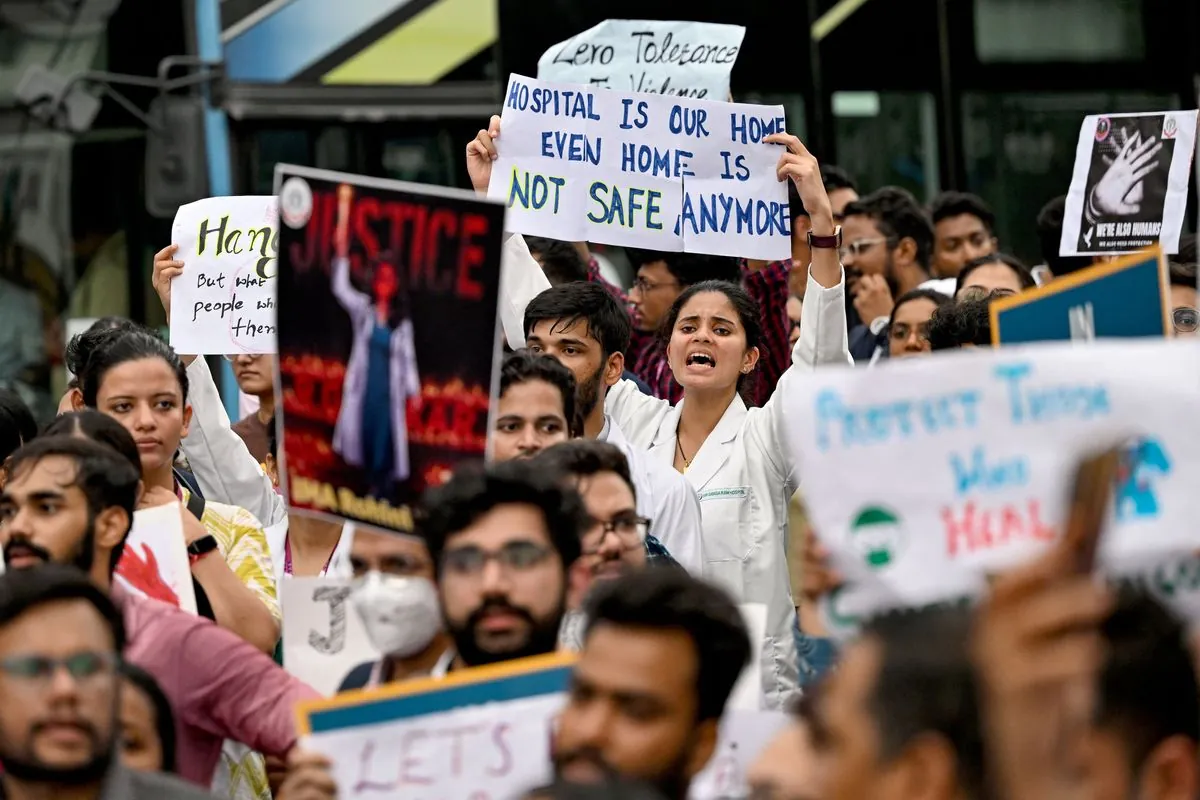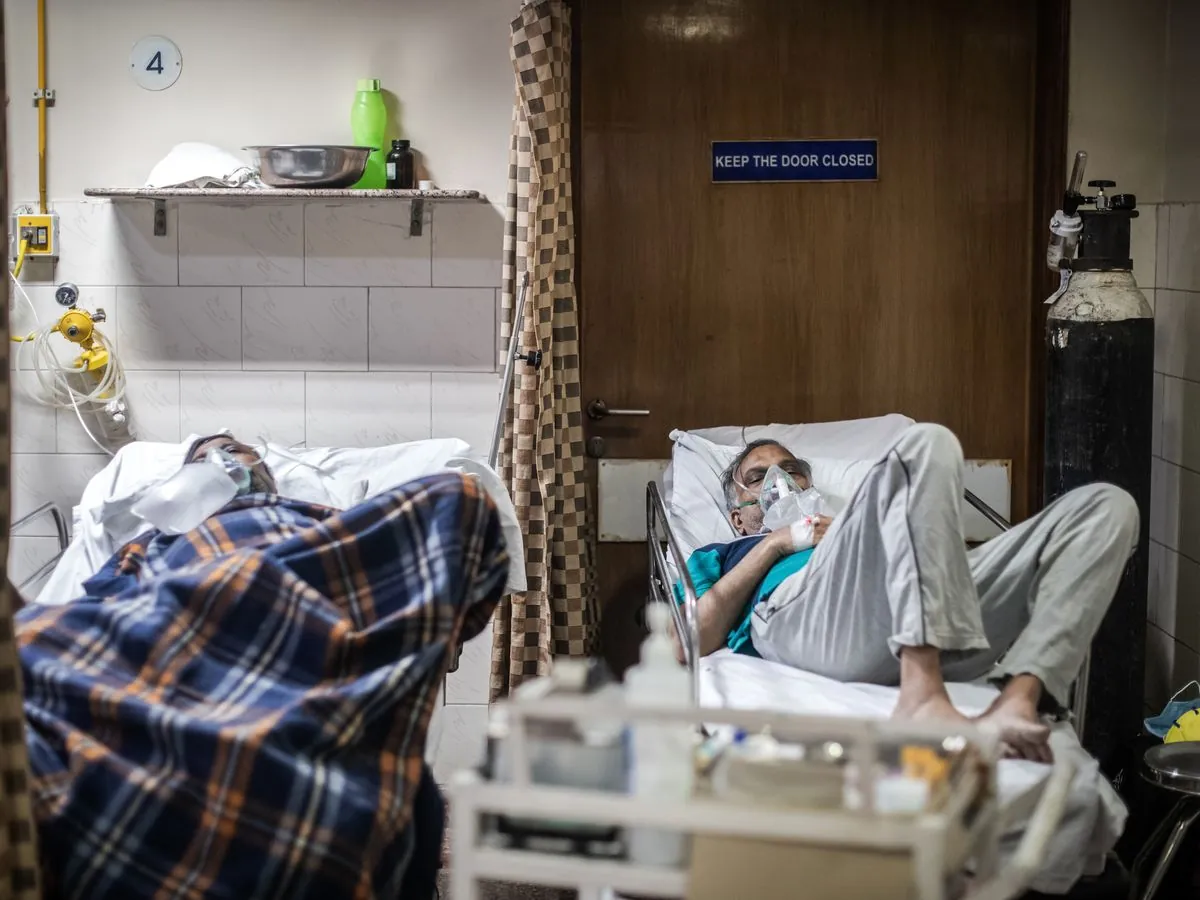Indian Junior Doctors Extend Protests Over Colleague's Murder
Junior doctors in India continue protests despite strike end, demanding justice for a murdered colleague. The incident reignites concerns about women's safety in healthcare, impacting medical services nationwide.

In India, junior doctors are maintaining their protest stance, even after the conclusion of a 24-hour strike organized by the Indian Medical Association (IMA), the country's largest doctors' association. The ongoing demonstrations stem from the tragic rape and murder of a 31-year-old postgraduate student of chest medicine on August 9, 2024, at R.G. Kar Medical College and Hospital in Kolkata.
This incident has reignited discussions about women's safety in India, particularly in the healthcare sector. Despite legislative changes following the infamous 2012 Delhi gang-rape case, activists argue that insufficient progress has been made in deterring violence against women.
The IMA, representing a significant portion of India's 1.2 million doctors, has appealed to Prime Minister Narendra Modi for intervention. They emphasize the need for enhanced security protocols in hospitals, comparable to those at airports, given that 60% of India's doctors are women. This statistic contrasts with the overall percentage of women in allopathic medicine in India, which stands at about 17%.
"My daughter is gone but millions of sons and daughters are now with me. This has given me a lot of strength and I feel we will gain something out of it."
While most doctors have resumed their duties following the IMA strike, some groups, including the All India Residents and Junior Doctors' Joint Action Forum, have declared their intention to continue a "nationwide cease-work" for 72 hours. This extended protest aims to pressure authorities into conducting a thorough inquiry and making arrests.
The ongoing demonstrations are impacting healthcare services across the country. With India's doctor-patient ratio already at 1:1456, significantly below the World Health Organization's recommendations, the protests are further straining the healthcare system. The government has urged doctors to return to work, citing rising cases of dengue and malaria, both endemic in many parts of India.

In response to the crisis, authorities are taking measures to control the situation. In Kolkata, police have implemented a week-long ban on assemblies of five or more people around R.G. Kar hospital, citing the need to maintain public order. This action reflects the delicate balance between the constitutional right to peaceful protest and the necessity of maintaining essential healthcare services.
The incident and subsequent protests highlight the complex challenges facing India's healthcare system, which is one of the largest in the world. As the country grapples with these issues, the medical community's demands for better security and swift justice underscore the need for comprehensive reforms to ensure the safety of healthcare professionals and improve the overall quality of medical services in India.


































